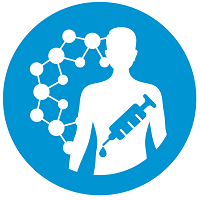Preclinical, Clinical and Translational Sciences
Propionic Acidemia/Aciduria Phase 1 Pharmacokinetics and Pharmacodynamic Distribution of LNP-mRNA-3927
Wednesday, October 23, 2024
3:15 PM - 3:30 PM MT
Location: 251 ABC

Christopher Rowbottom, BS
Scientific Director
Moderna TX
Rapid Fire Speaker(s)
Lipid nanoparticle (LNP) encapsulated mRNA therapeutics are complex assemblages of naturally occurring and xenobiotic chemical components. The lipid components that encapsulate the therapeutic RNA drive the distribution and subsequent productive mRNA delivery to cells as well as being critical to stabilizing the mRNA and protecting it from in vivo degradation. The work described here provides a brief overview of the mechanisms for LNP uptake and transfection of the desired protein(s) followed by a deeper dive into a clinical molecule. A Phase 1 case study of mRNA-3927 for the treatment of Propionic Acidemia will be discussed, including the FIH modeling strategy based upon preclinical pharmacokinetics of Lipid 5, mRNA, expressed protein and translational biomarkers. In addition, although statistically limited, the preliminary clinical data suggests dose-dependent increases in systemic exposure of mRNA-3927 and correlative reduction in key disease-relevant biomarkers providing the pharmacodynamic effects of LNP-mRNA-3927.
Learning Objectives:
- Upon completion, attendees will have an understanding of: 1. What is Propionic acidemia/aciduria
- 2. What is a lipid nanoparticle-mRNA drug product; from a DMPK perspective, what are the key analytes of interest.
- 3. Established the distribution of the ionizable lipid 5 and mRNA of mRNA-3927 and characterized the pharmacokinetic and pharmacodynamic relationships to enable a confident first-in-human dose projection


